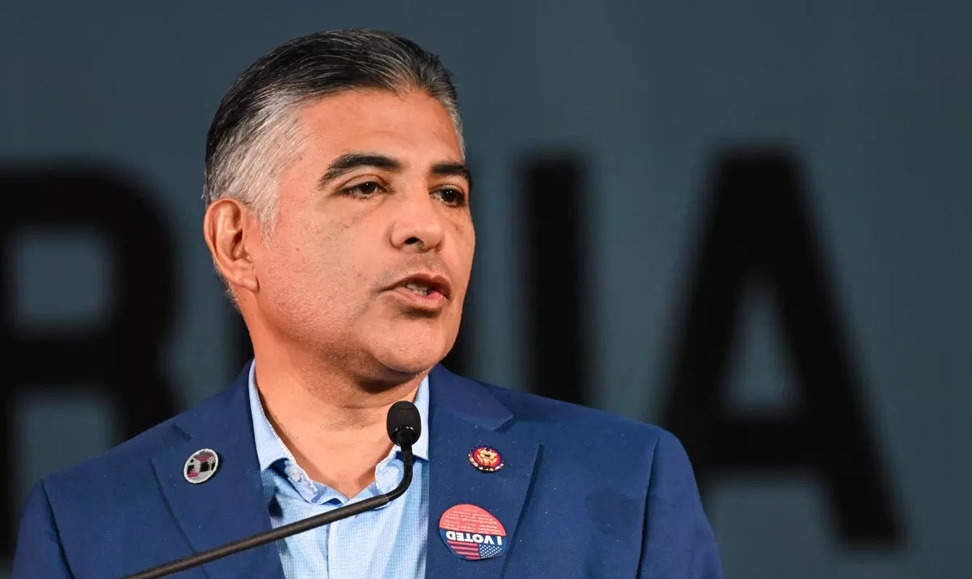MUMBAI: US Congressman, Tony Cardenas has introduced a bill on October 25 – the Case Backlog Transparency and Accountability Act to address the significant immigration-related processing backlog. It also seeks to set new reporting requirements for US Citizenship and Immigration Services (USCIS) to determine the causes of processing delays and facilitate finding possible solutions.
USCIS must periodically notify the US Congress of the number of pending cases, the average processing time for each type of immigration benefit, as decided by the immigration agency. USCIS and the Government Accountability Office (GAO) are also required to analyze the causes of the backlog and propose ideas to reduce delays.
TOI has often reported about the delay in processing and the hardship faced by the Indian diaspora in the US. For example, many spouses of H-1B workers lose their jobs or work opportunities as a result of the lack of timely adjudication of renewal of Employment Authorization Document (EAD) applications.
“The overwhelming immigration backlog at USCIS is leaving countless people in limbo,” Congressman Cardenas said. “A reporting system will improve transparency and help USCIS find the root cause of these processing delays. My hope is that accountability and greater awareness of what is not working at USCIS will lead to solutions in the future. Will go
Between 2015 and 2020, the number of cases awaiting judgment at USCIS increased from 3.2 to 5.8 million. According to USCIS’ own data, processing times are increasing, with applicants waiting for a decision more than seven months for most types of immigration benefit applications.
The legislation is supported by the American Immigration Lawyers Association (AILA), the Coalition for Human Immigrant Rights of Los Angeles (CHIRLA) and the National Partnership for New Americans (NPNA).
“Over the years, our 16,000-plus members representing families, vulnerable individuals and American businesses have suffered disastrous consequences from USCIS’ processing delays,” said Benjamin Johnson, executive director of the American Immigration Lawyers Association (AILA).
“Families have been torn apart, businesses have lost key employees, and vulnerable individuals are at risk. We applaud Representative Cardenas for being steadfast in holding USCIS accountable. This bill will demand that USCIS respond to ever-increasing immigrant cases Review and analyze the causes of backlogs and ensure that efficient and effective solutions are put in place for its customers.
“USCIS has taken important steps to increase efficiency and reduce burdens in our immigration system, but significant work remains to be done to fully address growing needs, especially addressing backlogs”, Angelica Salas, said executive director of the Coalition for Humane Immigrants. Rights (Chirala).
“The Case Backlog and Transparency Act of 2022 will provide USCIS with additional tools to reduce existing backlogs and prevent future ones. It will also enhance transparency and predictability to ensure that everyone has timely access to fair and quality immigration services.”
“The Case Backlog Transparency and Accountability Act of 2022 represents a positive step toward understanding the causes of USCIS backlogs and the public reporting necessary to increase accountability and transparency,” said Nicole Melaku, executive director of the National Partnership for New Americans ” NPNA).
“For years, the NPNA has asked USCIS to reduce backlogs and processing delays so that families and individuals do not have to wait unnecessarily to process their applications. We urge the ACT to propose common-sense solutions. Appreciate where Congress and USCIS can work together.” To address this issue and increase efficiency and fairness.”
Raul Pinto, senior staff attorney at the American Immigration Council, a Washington-based think-tank, points out that decision delays have plagued USCIS for years, a problem exacerbated as the agency shifted its focus from benefits to enforcement during the Trump administration. Gave. , weaponizing these delays to restrict immigration whenever possible. USCIS was also hit hard by the COVID-19 pandemic, which in some cases limited the workforce and access to files.
“The bill would bring much-needed accountability to USCIS through the enactment of transparency measures. For example, Cardenas’ proposal would require the agency to issue an annual report not only on backlog data, but also on the agency’s current efforts to improve the backlog, a detailed plan to eliminate the backlog, and measures to prevent future backlogs. But even The bill would also require USCIS to publish the report on the agency’s website,” Pinto says.
Source link


